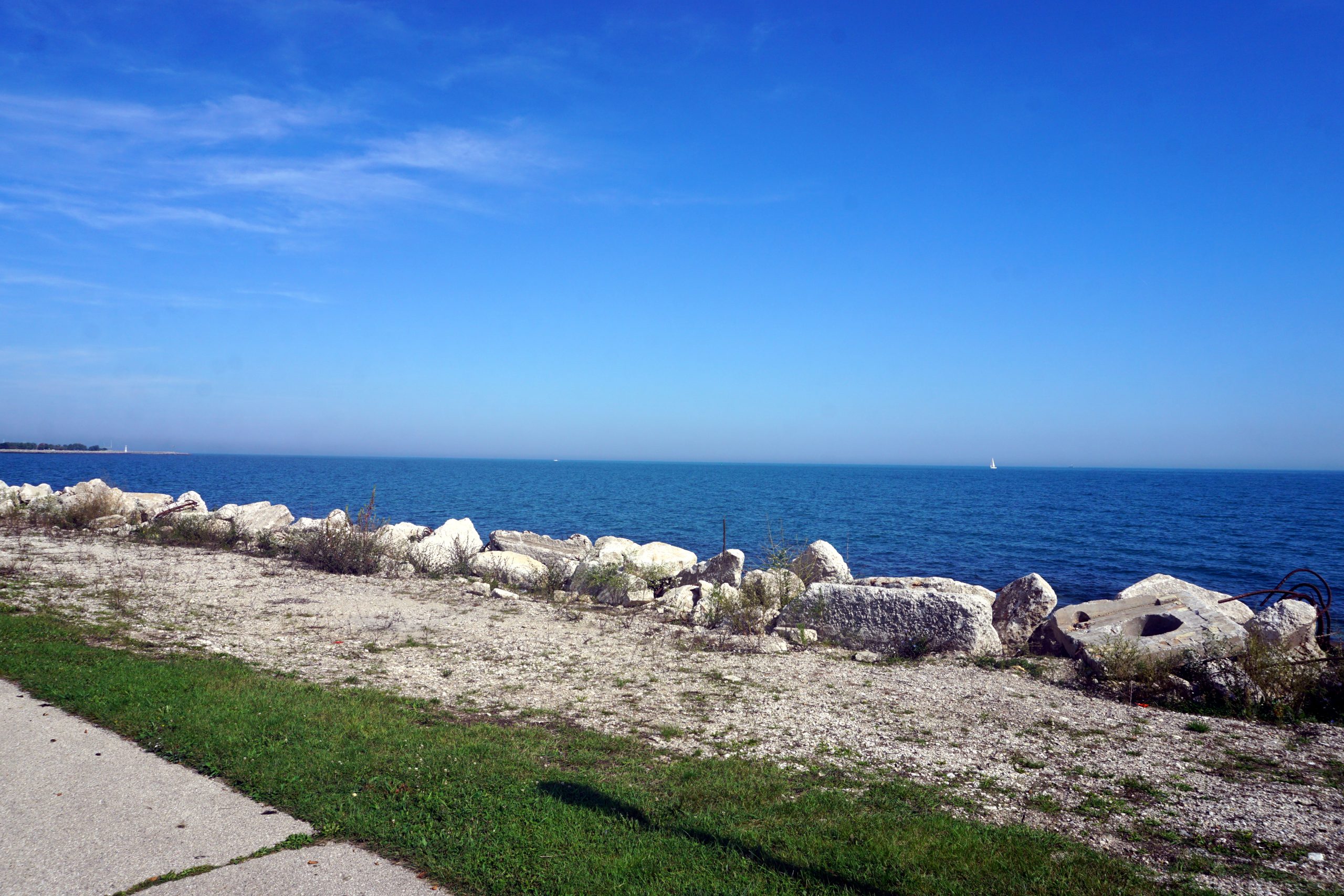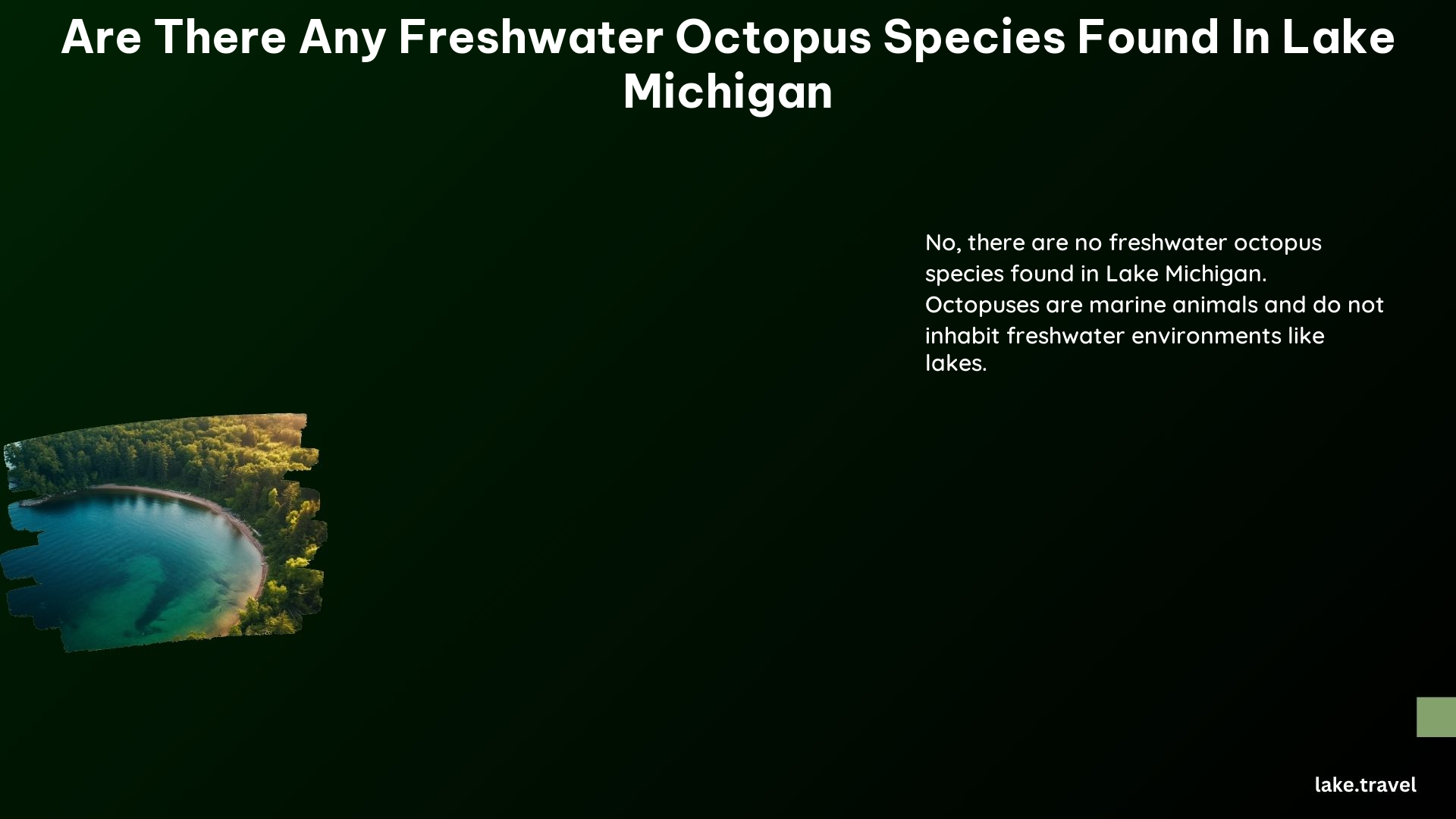No, there are no freshwater octopus species found in Lake Michigan. Octopuses are marine animals that live in saltwater environments, and Lake Michigan is a freshwater lake. The lake’s ecosystem supports a variety of aquatic wildlife, including fish species such as Lake Trout, Yellow Perch, Lake Sturgeon, and Muskellunge, but it does not support octopus populations.
Understanding the Habitat Requirements of Octopuses

Octopuses are fascinating creatures that have captured the imagination of people around the world. These invertebrates are known for their intelligence, unique anatomy, and ability to change color and texture to blend in with their surroundings. However, their habitat requirements are quite specific, and they are not found in freshwater environments like Lake Michigan.
Octopuses are marine animals, meaning they live in saltwater environments. They are typically found in coastal areas, such as rocky tide pools, coral reefs, and kelp forests, where they can find ample food sources and hiding places. Octopuses require a saline (salty) environment to survive, as their bodies are adapted to the chemical composition of seawater.
The saltwater environment provides octopuses with the necessary minerals, nutrients, and oxygen levels they need to thrive. Freshwater, on the other hand, lacks the appropriate salinity and chemical composition to support octopus populations. If an octopus were to be placed in a freshwater environment, it would quickly become stressed and eventually die.
Aquatic Life in Lake Michigan

Lake Michigan is one of the five Great Lakes of North America, located in the Midwestern United States. It is a vast freshwater lake, spanning over 22,000 square miles and reaching depths of up to 925 feet. The lake’s ecosystem is home to a diverse array of aquatic life, but it does not include any species of freshwater octopus.
The primary inhabitants of Lake Michigan are fish species, such as:
- Lake Trout
- Yellow Perch
- Lake Sturgeon
- Muskellunge
- Walleye
- Smallmouth Bass
- Chinook Salmon
These fish species are adapted to the freshwater environment of Lake Michigan and thrive in the lake’s unique ecosystem. They feed on a variety of prey, including smaller fish, crustaceans, and aquatic insects.
In addition to fish, Lake Michigan also supports populations of other aquatic organisms, such as:
- Freshwater mussels
- Crayfish
- Aquatic plants
- Zooplankton
These organisms play important roles in the lake’s food web and contribute to the overall health and balance of the ecosystem.
Reasons for the Absence of Freshwater Octopus in Lake Michigan
There are several reasons why freshwater octopus species are not found in Lake Michigan or any other freshwater bodies in the region:
-
Salinity Requirements: As mentioned earlier, octopuses are marine animals that require a saline environment to survive. The freshwater environment of Lake Michigan, with its low salinity levels, is not suitable for octopus habitation.
-
Prey Availability: Octopuses are predatory animals that feed on a variety of marine creatures, such as crustaceans, mollusks, and small fish. The prey species found in Lake Michigan’s freshwater ecosystem are not the same as those found in the ocean, and they may not provide the necessary nutrition and sustenance for octopuses.
-
Lack of Suitable Hiding Places: Octopuses are known for their ability to camouflage and hide in their environment. The rocky tide pools, coral reefs, and kelp forests of the ocean provide ample hiding places for octopuses to evade predators and ambush their prey. In contrast, the relatively flat and open nature of Lake Michigan’s shoreline and bottom may not offer the same level of hiding opportunities for octopuses.
-
Evolutionary Adaptation: Octopuses have evolved over millions of years to thrive in marine environments. Their physiology, behavior, and life cycle are all adapted to the specific conditions found in saltwater ecosystems. Transitioning to a freshwater environment would require significant evolutionary changes that have not occurred in octopus species.
Conclusion
In summary, there are no freshwater octopus species found in Lake Michigan or any other freshwater bodies in the region. Octopuses are marine animals that require a saline environment to survive, and the freshwater ecosystem of Lake Michigan is not suitable for their habitation. The lake’s aquatic life is dominated by fish species and other organisms adapted to the unique conditions of a freshwater environment.
While the absence of octopuses in Lake Michigan may disappoint some enthusiasts, the lake’s diverse and fascinating ecosystem offers plenty of other wonders to explore and appreciate. From the majestic Lake Trout to the elusive Lake Sturgeon, Lake Michigan is a treasure trove of aquatic life that continues to captivate and inspire those who venture to its shores.
Reference:
– Great Lakes Fishery Commission
– National Oceanic and Atmospheric Administration (NOAA)
– Michigan Department of Natural Resources
